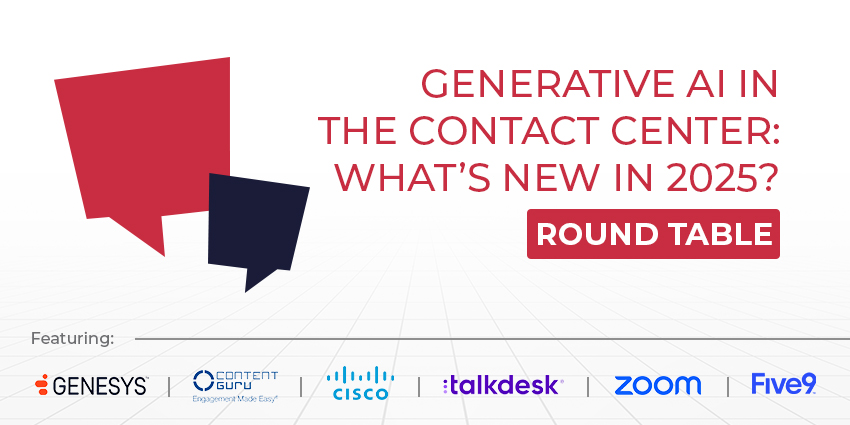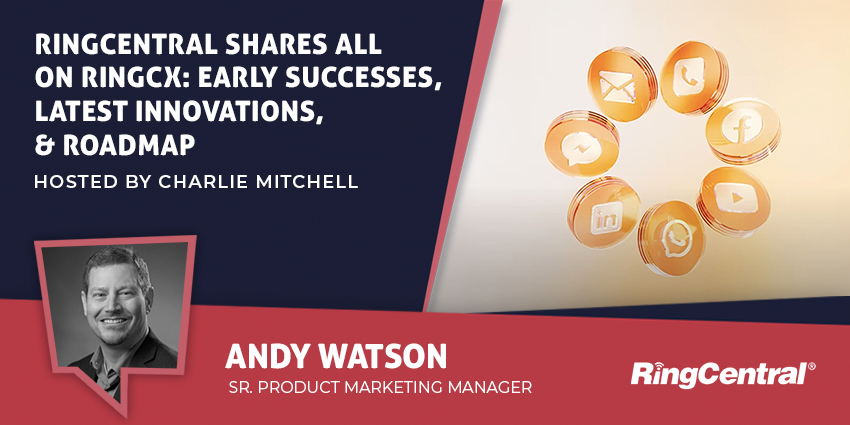Ever since the start of the pandemic, contact centre agents have had to deal with the twin pressures of increased volume and new working environments. Finding a way to help agents thrive in the face of those changing customer expectations requires careful management – both in terms of technology and culture.
In an exclusive interview, CX Today welcomes Joanna Palmer, CX Client Principal – Contact Centre at RingCentral and Zeus Kerravala, Founder and Principal Analyst at ZK Research, to guide us through how agents should be managed in this new world of work.
Permanent Industry Changes
The upheaval of the pandemic has led to permanent changes in the industry. “What the pandemic introduced in addition to going digital-first is an environment of innovation which I see as still continuing on post-pandemic,” says Palmer. “No longer are companies so risk-averse, but rather they want to try to continue to push the envelope and improve the customer experience.” Perhaps the most visible change has been the move to remote working – aspects of which Palmer once again expects to stay. “There’s a lot of debate right now as to whether agents will return to the office or not. In the same theme of personalisation that we see with the customer experience, we’ve got to look at the agent experience as well. I don’t think it’s a one size fits all for agents.”
Despite the changes wrought by COVID-19, customers still want their questions answered as quickly as possible at a basic level. “Evolving customer expectations mean that now they’re expecting personalisation and they’re expecting to be able to communicate in the channel of their choice. One of the biggest pieces, however, is that they want their experience to be effortless. They want companies to know them, to really respect their time, and really understand them – companies that reach out when there’s a problem, and are transparent with customers.”
The benefits of reaching that expectation are significant, but the perils of failing to do so are even stronger. “Good service means I’m going to be loyal to you for a very short period of time, bad service means you’re going to lose me in a very short period of time,” says Kerravala. “In fact, my research shows that last year, two-thirds of millennials admitted they changed loyalties to a brand because of a single bad experience. That puts tremendous pressure on agents because this isn’t just about being polite or even being friendly to somebody. You need to have the tools, the information and the data to be able to answer these customers in a timeframe that they’ve become accustomed to.”
Technology and Culture
“It all comes down to toolset and culture,” says Palmer, who stresses that it is now a key time to evaluate the past two years. “Start questioning and identifying where you have friction in your agent experience. Some of the things that are really critical to think about in terms of tools is having an effective collaboration tool, having video capabilities so that you can effectively collaborate with colleagues, as well as having the cloud infrastructure necessary for a digital-first, omni-channel contact centre.”
That ongoing cloud transformation in the industry has made the transition to remote working less bumpy than it could have been – with companies further along the journey reaping the rewards. “The pivot to the cloud allows us to bring in a whole set of AI-driven management tools that we couldn’t before,” says Kerravala. “AI has got the power to help our agents become super agents, and help our managers become super managers. If you’re going to have remote agents, you need to rethink the way you manage your agents. It’s not about doing random periodic checks and things like that – it’s using AI to constantly be listening, to almost be able to manage each individual on a case-by-case basis to find out where they’re strong and where they’re not.”
RingCentral’s offering leverages AI alongside a suite of other technologies to ensure a consistent agent experience whether working remotely or in-office. “Open APIs allow you to integrate your CRM and your back office systems with your contact centre platform so that you can easily access information,” says Palmer. “We also offer AI-infused tools for quality management, including agent assist. I love some of the agent assist tools out there now that can detect emotion in real-time and start coaching the agent and show them how to empathise more with the caller or customer.” The company also focuses on removing the mental burden on a given agent. “We’re simplifying the agent experience by offering a single pane of glass. There’s nothing more frustrating than the number of applications that some of these agents had to traverse in a legacy environment.”
Although ensuring agents are well equipped to deal with omni-channel enquiries is vital, the bread and butter voice channel can’t be neglected. “People ask all the time whether the voice channel is dead,” says Kerravala. “What I tell people is that it is simultaneously becoming less important and more important. My research shows that 80% of interactions now start on some digital channel, but within those, a large percent actually transition to voice sometime in the call.” Palmer concurs, saying: “The digital channels aren’t replacing phones. There’s a concept called right channelling – ensuring that the right contact gets handled through the right medium. I think it’s absolutely critical to think about the various different customer journeys throughout your organisation today and make sure that you’ve got the channel escalation properly matched with the customer journey.”
Looking to the future, Palmer expects the experience of the last two years to lead to innovations in the ways agents provide a high level of customer experience – provided companies are bold enough to capitalise. “Question the status quo. Do not recreate your legacy processes up in the cloud. It is a time to innovate and to reinvigorate your experience. This is such a fun time to be in this space to really create what that future looks like.“
To find out more about leading contact centre agents through change, go here. To see the full video conversation between Joanna Palmer and Zeus Kerravala, go here.







